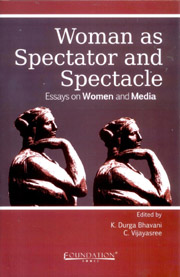Book contents
- Frontmatter
- Contents
- Notes on Contributors
- Preface
- Introduction
- Part I Media and Gender (In)Justice
- 1 Wanted: A Gender Perspective on Media Globalisation
- 2 Media Texts for Women by Women
- 3 Media-ting ‘Patriarchy’
- 4 The Endangered Gender: Images of Women in Advertisements
- 5 Woman in Visual Media: The Spectator vs. the Spectacle
- 6 Two Faces of Women on Television: Need for a Gender Policy
- Part II Framing Women
1 - Wanted: A Gender Perspective on Media Globalisation
from Part I - Media and Gender (In)Justice
Published online by Cambridge University Press: 05 November 2011
- Frontmatter
- Contents
- Notes on Contributors
- Preface
- Introduction
- Part I Media and Gender (In)Justice
- 1 Wanted: A Gender Perspective on Media Globalisation
- 2 Media Texts for Women by Women
- 3 Media-ting ‘Patriarchy’
- 4 The Endangered Gender: Images of Women in Advertisements
- 5 Woman in Visual Media: The Spectator vs. the Spectacle
- 6 Two Faces of Women on Television: Need for a Gender Policy
- Part II Framing Women
Summary
I have been a woman in the media for about thirty years and ever since, I have been grappling in various ways with issues relating to both women in the media and women and media, both as a media practitioner and as a media watcher and, of course, as a person who is concerned about social issues in general and gender issues in particular.
My work on gender and media has been primarily related to the print media, particularly news and current affairs, but also women's magazines. However, in this article, I would like to highlight an aspect of the subject that cries out for more attention from academic researchers: the implications of media globalisation for concerns about women in/and media.
This is, of course, easier said than done, especially since it is a relatively uncharted territory. While both globalisation and media globalisation have received considerable attention from scholars and activists in recent times, the process of developing a gender analysis of media globalisation is still, evidently, a work in progress. But it is clearly a process that we all need to engage with and contribute to. It is particularly important, I think, for scholars in India – which boasts of a large, growing, influential and complex media environment – to provide a perspective on media globalisation, in general, and gender within media globalisation, in particular, from the global South.
- Type
- Chapter
- Information
- Woman as Spectator and SpectacleEssays on Women and Media, pp. 3 - 15Publisher: Foundation BooksPrint publication year: 2010

